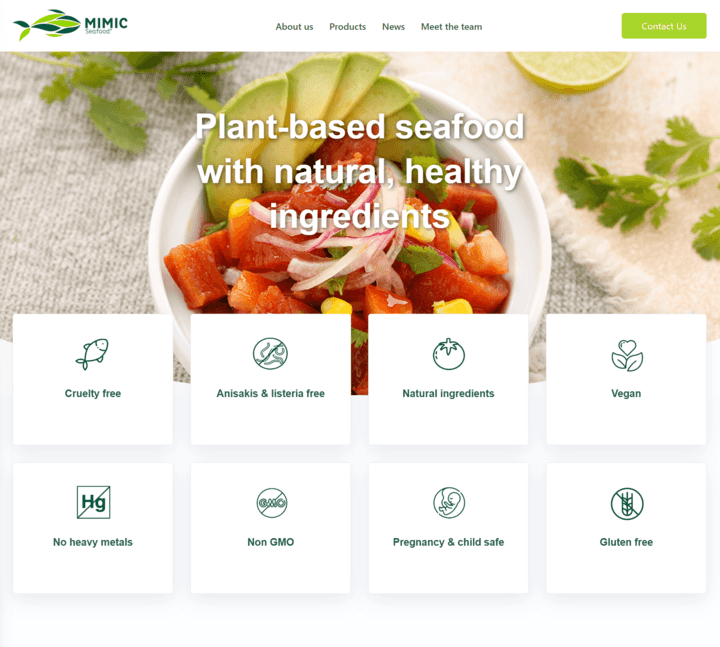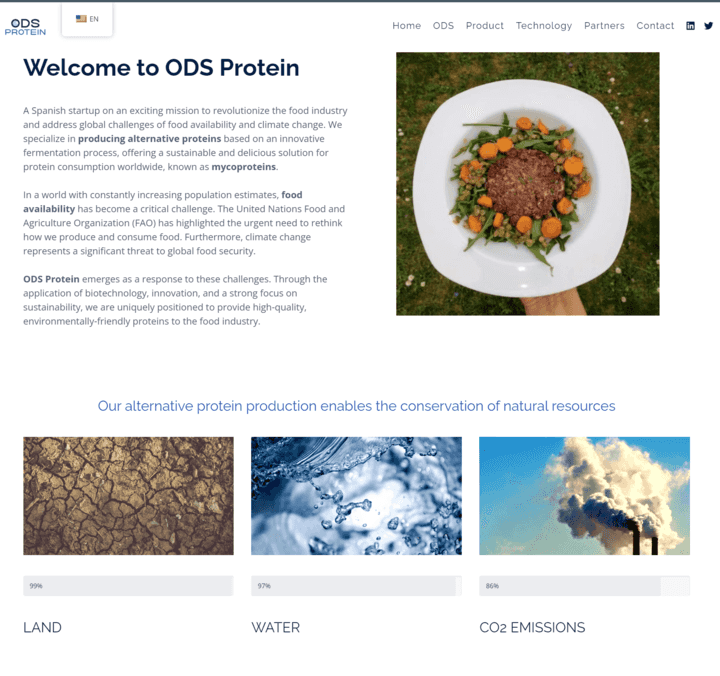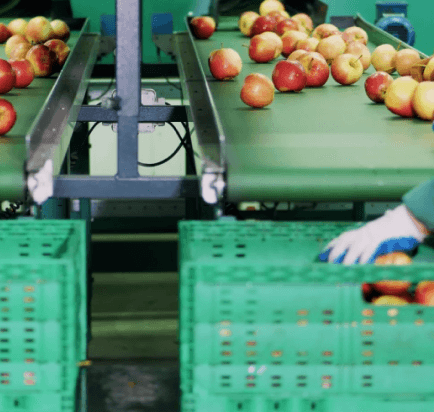Introduction to the Module
Competence Description:
Innovation, in the context of this
module, is defined as the capacity to introduce novel ideas, processes, or technologies into the food supply chain
to enhance its efficiency, sustainability, and overall performance. This competence is crucial because innovation is
the driving force behind the evolution of the food industry, helping it adapt to changing consumer demands,
environmental challenges, and technological advancements. It empowers individuals to envision and implement
transformative changes that can shape the future of food production and distribution.

Source: Freepik
Why is this Competence Important?
The competence in innovation within the food supply chain
is paramount due to several key reasons:
1. Adaptation to Market Dynamics: As consumer
preferences and market trends evolve, the food industry must constantly adapt.
2.
Sustainability: Innovation can lead to more sustainable practices within the food supply chain.
3. Competitive Advantage: Companies that embrace innovation gain a competitive edge.
4. Resilience: The food supply chain faces various disruptions, from supply chain interruptions to
global crises.
5. Global Food Security: With a growing global population, ensuring food
security is a top priority.
This Module will equip you with the knowledge and skills needed to drive
innovation within the food supply chain, ensuring that you are well-prepared to navigate the challenges and
opportunities in this rapidly evolving industry.
The learning objectives of this Module are:
1. Defining the Goals and Objectives of the Transformation Process.
2. Fostering
Openness to Innovation, Curiosity, and Business Courage.
3. Exploring the Importance of
Flexible Thinking and Creativity in Problem-Solving.
4. Embracing Change and Maintaining
Readiness for Learning and Growth.
5. Developing Problem-Solving, Decision-Making, and
Strategic Thinking Abilities.
6. Exploring Biotechnologies for Agricultural and
Agro-Industrial Innovation.
MIMIC Seafood

Source: https://mimicseafood.com/
MIMIC seafood is Spanish startup that created the experience of eating fish and seafood using 100% plant-based
products. This company was founded in Madrid in 2018 as a project under –ivoro Food Innovation Hub.
As an
initial situation, the MIMIC Seafood team was concerned about the current situation of environmental stress on the
oceans, which generates a decrease in the stock of fish in the ecosystem every year. They were also concerned about
the issue of health, taking into account the current levels of pollution of the oceans due to microplastics and
heavy metals, and the impact on our health that eating contaminated fish may have.
Their declared mission is
to provide better food choices to consumers that save oceans, meaning that they want to make it possible for
consumers to find tasty, healthy food without having to compromise on their values. It is a Mediterranean food
company with deep roots in the local food culture, which values the connections with local farmers and small
businesses.
 Source:
https://mimicseafood.com/
Source:
https://mimicseafood.com/
Thanks to strong R&D and the support of several accelerators and other programs,
they developed several innovative products, such as the Tunato®, made of tomato, olive oil, algae, soy sauce, and
spice blend, which offers the whole experience of eating raw tuna without overfishing the oceans. From eggplant,
they also developed Aubergeel®, that looks and tastes like a fish.
The solution that they offer is cruelty
free, anisakis and listeria free, gluten free. Their products are vegan, made with natural ingredients, no GMO, and
pregnancy and child safe.
Website: https://mimicseafood.com/
ODS protein

Source: www.odsprotein.com
ODS
protein a Galician startup that produces complementary proteins from fermentation processes with an ideal
formulation and texture to be incorporated as ingredients in different food products.
The availability of food
is set as a challenge to the world population estimates made by the FAO and the climatic problem, for which the
current food supply assumes part of the responsibility. ODS Protein was created in 2021 to produce and supply
alternative proteins in the food industry, driven by biotechnology, innovation, and sustainability.

Source: www.odsprotein.com
ODS Protein produces alternative proteins through a fermentation process, using
bioreactors to control all of the essential parameters and maximize biomass production. They use subproducts of the
food industry as raw materials that they transform into primary materials of new production processes, contributing
to the circular economy.
Their strategy facilitates the scalability of the model, maintaining the quality of
the final product. Thus, thank to R&D solutions, this company achieves finding sustainable solutions for protein
consumption on the planet.
Website: https://odsprotein.com/
Bibliography
ODS Protein. (2023, December 28). ODS Protein - Inicio. https://odsprotein.com/en/
Mimic Seafood – Plant-based seafood
that saves oceans. (n.d.). https://mimicseafood.com/
WFP
Innovation. (n.d.). https://innovation.wfp.org/
Sáez, C.
B., Cruz‐Cázares, C., Garcı́a-Marco, T., & Sánchez, M. (2017). Open innovation in the food and beverage
industry. Management Decision, 55(3), 526–546. https://doi.org/10.1108/md-04-2016-0213
Grundström, C. (2012). FAST-GROWING SMEs AND THE ROLE OF INNOVATION. Liu-se. https://www.academia.edu/90972527/FAST_GROWING_SMEs_AND_THE_ROLE_OF_INNOVATION
Nwuneli, N. O. (n.d.). The future of the food ecosystem -- and the power of your plate [Video]. TED
Talks. https://www.ted.com/talks/ndidi_okonkwo_nwuneli_the_future_of_the_food_ecosystem_and_the_power_of_your_plate?language=en
Tyink, A. (n.d.). Disrupting the food system: innovative models of fresh food delivery [Video]. TED
Talks. https://www.ted.com/talks/alex_tyink_disrupting_the_food_system_innovative_models_of_fresh_food_delivery



 Source:
Source:

